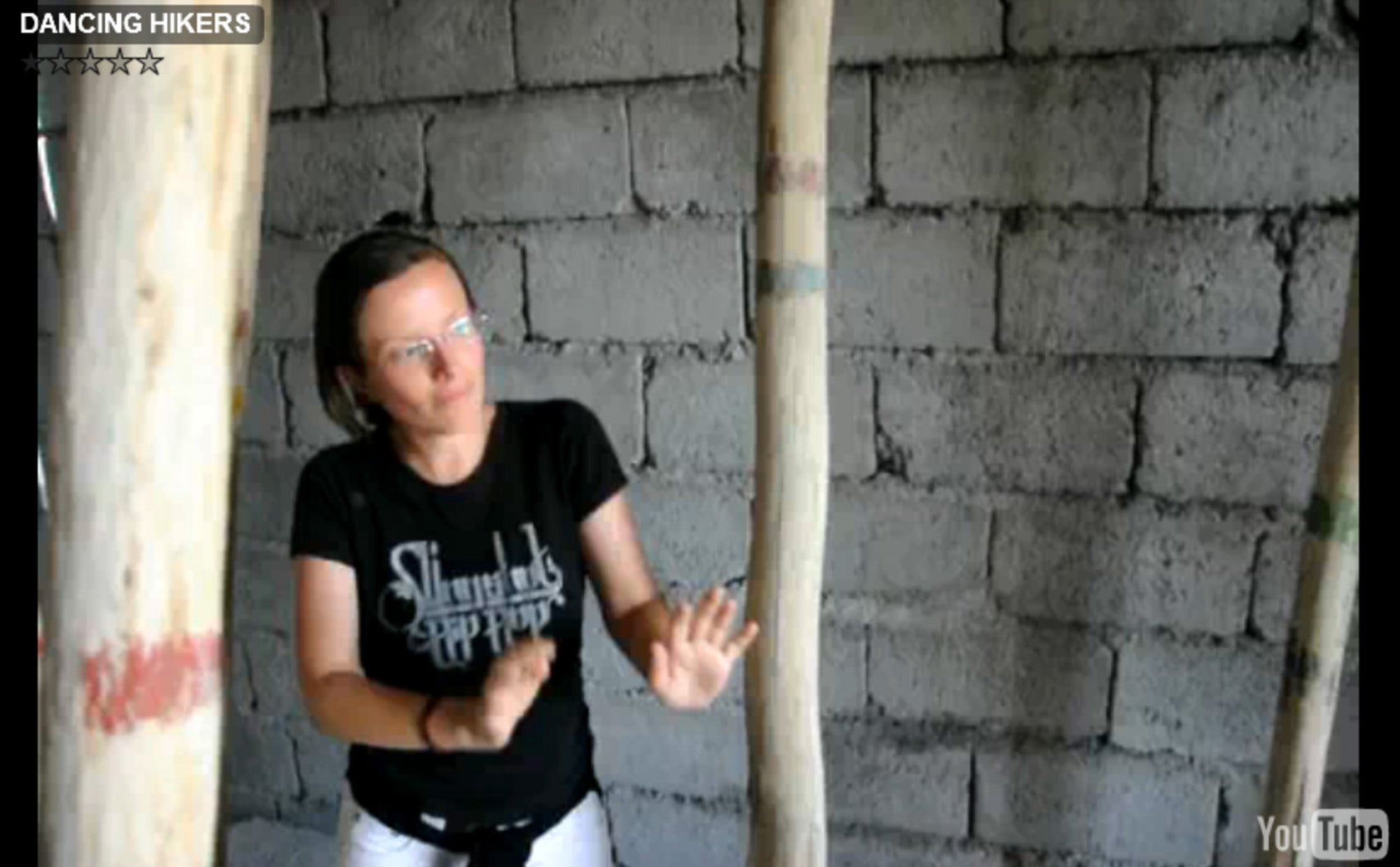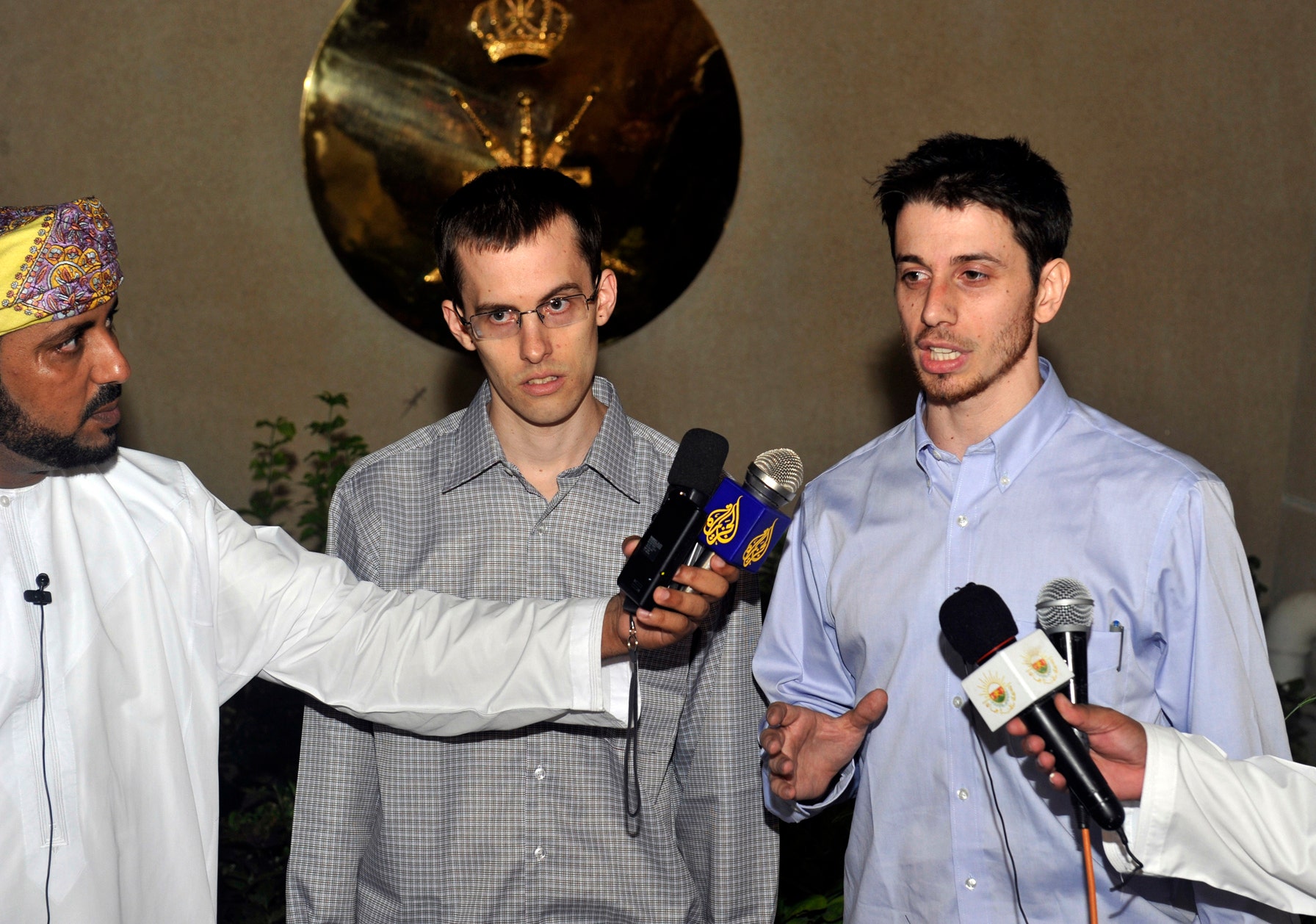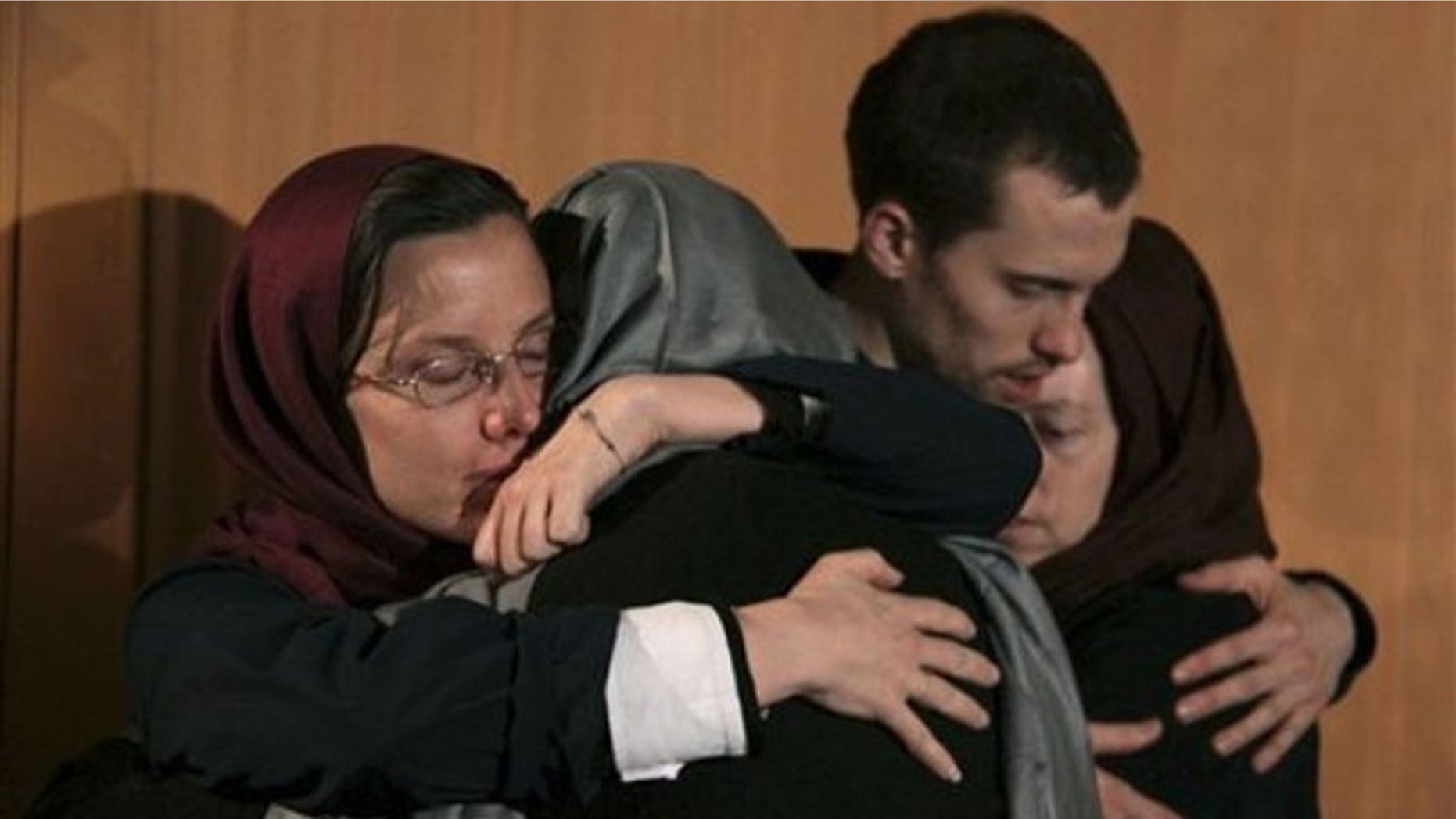The Unforgettable Ordeal: American Hikers Captured In Iran
The captivating yet harrowing saga of three American hikers captured in Iran remains a poignant reminder of the unpredictable intersections between adventure, geopolitics, and personal freedom. What began as an innocent hiking trip along a scenic border region quickly devolved into a two-year nightmare of imprisonment, accusations of espionage, and a desperate struggle for liberation. This comprehensive account delves into the details of their capture, their time in Iranian captivity, and the relentless efforts that ultimately secured their release, offering crucial insights into a high-stakes diplomatic and humanitarian crisis.
Nearly five years before their full story emerged, the world first learned that three young American hikers had been imprisoned by Iran, accused of spying. This incident, involving Shane Bauer, Sarah Shourd, and Josh Fattal, captivated global attention, highlighting the precarious nature of international borders and the profound impact of political tensions on individual lives. Their ordeal, meticulously recounted in their memoir "A Sliver of Light," sheds light on the complex web of circumstances that led to their capture and subsequent imprisonment.
Table of Contents
- The Fateful Journey: How Three American Hikers Crossed into Iran
- Accusations of Espionage: Iran's Stance
- Life Inside Evin Prison: A Glimpse into Captivity
- The Agony of Waiting: Families' Struggle for Freedom
- Breakthroughs and Bail: Sarah Shourd's Release
- The Long Road Home: Bauer and Fattal's Freedom
- Reflecting on the Ordeal: Memoirs and Public Statements
- Lessons Learned: Navigating Geopolitical Tensions and Travel
The Fateful Journey: How Three American Hikers Crossed into Iran
The story of Shane Bauer, Josh Fattal, and Sarah Shourd, the American hikers who in July 2009 inadvertently crossed the border from Iraqi Kurdistan into Iran, began as an adventure among friends. They were hiking near the scenic Ahmed Awa waterfall, a popular tourist spot in Iraqi Kurdistan, when their path unexpectedly led them across an unmarked and often ambiguous border. All evidence suggests their crossing was accidental, a tragic misstep in a region where boundaries can be fluid and poorly demarcated. Shon Meckfessel, who was on his way to meet Shane Bauer, Sarah Shourd, and Josh Fattal at the waterfall, received the chilling call that they were captured, signaling the abrupt end of their freedom and the beginning of a prolonged international incident.
In their memoir "A Sliver of Light," Shane Bauer, Sarah Shourd, and Josh Fattal explain in detail how they were captured on a road that bordered Iran. Iranian border guards arrested Bauer’s fiancée, Sarah, and Fattal near northern Iraq’s border with Iran in July 2009. This immediate apprehension set the stage for a dramatic diplomatic standoff. The hikers were subsequently imprisoned for what would become two years, thrust into a geopolitical struggle far beyond their understanding or control. Their capture quickly escalated into a major news story, drawing attention to the complexities of the Iran-Iraq border region and the potential perils for travelers in politically sensitive areas.
The Hikers' Background and Intentions
At the time of their capture, Shane Bauer was 27, Joshua Fattal was 27, and Sarah Shourd was 31. They were friends with a shared passion for travel and adventure, particularly in less-traveled regions. Sarah Shourd, for instance, had a background in journalism and human rights work, while Shane Bauer was a freelance journalist and photographer. Josh Fattal was an environmental activist. Their collective interests often led them to explore remote and culturally rich areas. Shourd later recounted to Oprah Winfrey that the trio traveled to the region with no intention of crossing into Iran, underscoring the accidental nature of their border transgression. Their hiking trip was purely recreational, driven by a desire to experience the natural beauty and cultural heritage of Iraqi Kurdistan, not to engage in any illicit activities. The idea that they were spies, as Iran would later claim, was entirely inconsistent with their backgrounds and stated intentions.
Accusations of Espionage: Iran's Stance
Almost immediately after the hikers were captured in Iran, Iranian authorities began to float accusations of espionage. Initial reports suggested they would be charged with spying, and subsequent statements solidified this claim. Iran subsequently claimed the three were spies but offered no evidence to support this grave accusation. This lack of concrete proof, coupled with the hikers' consistent denial of any wrongdoing, fueled international skepticism about Iran's motives. Many observers, including the New York Times, reported that the hikers seemed to be the latest pawns in a power struggle between the Islamic Republic and the United States.
The situation for the three American hikers detained in Iran after crossing the border with Iraq in July seemed to worsen with each passing week. Iranian officials announced that Shane Bauer, Joshua Fattal, and Sarah Shourd would be tried on undisclosed charges, adding another layer of ambiguity and concern to their plight. The accusation of espionage, a severe charge in Iran, carried the potential for lengthy prison sentences or worse. This "war of words" between Iranian officials and international bodies underscored the political nature of their detention, transforming a hiking misadventure into a complex diplomatic crisis.
The Legal Ordeal and Undisclosed Charges
The legal process for the hikers captured in Iran was shrouded in secrecy and lacked transparency. The initial statements about "undisclosed charges" set a troubling precedent, making it difficult for their families and legal representatives to mount an effective defense. Despite persistent calls from the U.S. government and international human rights organizations for their release or a fair trial, the Iranian judiciary proceeded with charges that many viewed as politically motivated. Ultimately, two of the hikers, Shane Bauer and Josh Fattal, were sentenced to eight years in prison for espionage and illegal entry into Iran. Sarah Shourd, though later released, also faced similar charges. This severe sentencing, based on what the U.S. and the hikers maintained was an accidental border crossing, highlighted the deeply politicized nature of their case and Iran's use of the hikers as leverage in its strained relations with the West.
Life Inside Evin Prison: A Glimpse into Captivity
During their prolonged detention, the three American hikers were imprisoned at Evin Prison, a notorious facility in Tehran known for holding political prisoners and those accused of national security offenses. Life inside Evin Prison was a harsh and isolating experience. The conditions were challenging, marked by long periods of solitary confinement, limited access to legal counsel, and psychological pressure. Their memoir, "A Sliver of Light," offers a harrowing account of their daily struggles, the constant uncertainty, and their efforts to maintain their sanity and hope amidst despair. The documentary that chronicles their time at this prison not only details the grim realities of their captivity but also shows the very personal story of three families and their unyielding fight for justice and freedom.
The mental and emotional toll of being held in such an environment, accused of crimes they did not commit, was immense. They relied on each other for support, sharing what little news they could gather and finding ways to cope with the profound isolation. Their experiences inside Evin Prison became a testament to human resilience in the face of extreme adversity, a stark reminder of the human cost of geopolitical tensions. The narrative of the hikers captured in Iran is incomplete without understanding the psychological battle they endured within those prison walls.
The Agony of Waiting: Families' Struggle for Freedom
Back in the United States, the families of the hikers captured in Iran waited in anguish. Weeks passed by without a word from Sarah, Shane, or Josh, plunging their loved ones into a torturous state of uncertainty. The lack of communication was one of the most agonizing aspects of their ordeal, leaving families to imagine the worst and cling to any glimmer of hope. They launched a tireless campaign for their release, creating a website, freethehikers.org, and releasing videos to the public to raise awareness and pressure Iranian authorities. Since returning to the U.S., Shon Meckfessel, the friend who was supposed to meet them, also released videos to this site, dedicated to getting them out.
Seven months into the ordeal, in March 2010, Sarah Shourd was finally able to call home and let her family know she was alive. This first contact, though brief, offered immense relief and renewed hope for all three families. Two months later, Iran agreed to let the hikers have a brief reunion with their mothers, a moment of profound emotional significance that provided a vital connection to the outside world and a temporary respite from their isolation. These small victories, hard-won through persistent diplomatic efforts and public advocacy, sustained the families through the long and arduous wait for their loved ones to return home. The story of the hikers captured in Iran is as much about the resilience of the families as it is about the resilience of the captives themselves.
Breakthroughs and Bail: Sarah Shourd's Release
The first significant breakthrough in the case of the hikers captured in Iran came after 410 days in jail. Sarah Shourd, one of the three American hikers imprisoned in Tehran on espionage charges, was released on September 14, 2010, on $500,000 bail. This release, though a cause for immense relief, also highlighted the complexities and arbitrary nature of their detention. The bail amount, a substantial sum, was reportedly paid by the Sultan of Oman, who played a crucial mediating role in the negotiations. Shourd's release was seen as a humanitarian gesture by Iran, but it also served as a strategic move in the ongoing diplomatic chess game between Tehran and Washington.
Her freedom, however, did not diminish the urgency of the situation for Shane Bauer and Josh Fattal, who remained in Evin Prison. Sarah's return to the U.S. brought a flood of information about their shared captivity, providing invaluable details to their families and to the U.S. government about the conditions inside Evin and the mental state of the two men still held. Her release offered a tangible sign that freedom was possible, yet it also intensified the focus on securing the release of her two companions, ensuring that their story of being hikers captured in Iran would have a complete, happy ending.
The Long Road Home: Bauer and Fattal's Freedom
After Sarah Shourd's release, the fight for Shane Bauer and Josh Fattal's freedom continued for another year. This Saturday will mark the one-year anniversary of the imprisonment of three Americans in Iran, the New York Times reports, a stark reminder of the passage of time and the ongoing anguish. Finally, after 781 days in captivity, over two years in an Iranian prison, American hikers Joshua Fattal and Shane Bauer were freed. They arrived in New York on a Sunday, exhausted but relieved, ready to share their story of resilience and their fight to keep hope alive. The two men spoke in New York after arriving back in the United States, recounting the details of their arduous journey and their determination to survive.
Their release also came with a hefty price tag: the hikers were released on $500,000 bail for each, mirroring the terms of Sarah Shourd's release. This again underscored the financial and diplomatic efforts required to secure their freedom. The return of all three hikers marked the end of a prolonged and emotionally draining ordeal for them and their families. Their journey home was not just a physical one; it was a journey from despair to relief, from isolation to reunion, bringing closure to one of the most high-profile cases of Americans captured in Iran in recent history.
Reflecting on the Ordeal: Memoirs and Public Statements
Upon their return to the U.S., Shane Bauer, Sarah Shourd, and Josh Fattal began to share details of their Iranian captivity. Their experiences were chronicled in their powerful memoir, "A Sliver of Light: Three Americans Imprisoned in Iran," which offered an intimate and harrowing account of their two years behind bars. The book provided the public with an unprecedented look into the psychological and physical toll of their imprisonment, the challenges of maintaining hope, and the bonds that formed between them.
Beyond their memoir, the hikers also made public appearances, speaking about their experiences. Shane Bauer (L), Sarah Shourd (C), and Josh Fattal (R) spoke about their experiences being imprisoned in Iran during an "Occupy the Prisons" protest at San Quentin Prison in San Quentin, California. These public engagements allowed them to process their trauma, advocate for other political prisoners, and shed light on the broader issues of human rights and international justice. Their story, from being hikers captured in Iran to becoming advocates for freedom, resonated deeply with audiences worldwide, emphasizing the importance of human connection and resilience in the face of extreme adversity.
Lessons Learned: Navigating Geopolitical Tensions and Travel
The saga of the American hikers captured in Iran serves as a profound case study in the complexities of international travel, especially in regions marked by geopolitical instability. Their experience underscores several critical lessons for travelers, governments, and human rights organizations alike.
Firstly, it highlights the inherent risks of venturing near international borders, particularly those that are poorly marked or contentious. Even an innocent misstep can have severe consequences when political relations are strained. Travelers must exercise extreme caution, conduct thorough research on border regulations, and be aware of any no-go zones or disputed territories. Relying solely on GPS or local knowledge without verifying official boundaries can lead to unforeseen and dangerous situations. Always consult official government travel advisories and local embassy information before planning trips to sensitive regions.
Secondly, the case vividly illustrates how individuals can become pawns in larger geopolitical power struggles. The accusations of espionage against Bauer, Shourd, and Fattal, despite a lack of evidence, were widely seen as a tactic by Iran to gain leverage in its diplomatic dealings with the United States. This means that even if one's intentions are pure, the political climate of a host country can dramatically alter the outcome of an otherwise innocuous incident. Travelers should be acutely aware of the political landscape of their destination, understanding the relationship between their home country and the one they are visiting. Avoiding any activities that could be misinterpreted, even innocently, is paramount.
Thirdly, the ordeal emphasizes the vital role of sustained diplomatic efforts and public advocacy in securing the release of citizens unjustly detained abroad. The relentless work of their families, supported by the U.S. government, human rights groups, and international mediators like Oman, was crucial in keeping their case in the public eye and pressuring Iranian authorities. This collective effort demonstrates that even in seemingly intractable situations, persistent advocacy can yield results. For individuals or families facing similar predicaments, understanding the avenues for international support and legal assistance is invaluable.
Finally, the resilience shown by Shane, Sarah, and Josh during their captivity, and their subsequent willingness to share their story, offers a powerful testament to the human spirit. Their ability to endure prolonged isolation and uncertainty, and to emerge with a commitment to advocating for others, provides a beacon of hope. Their memoir and public statements serve not only as a personal narrative but also as a warning and an educational tool for future travelers. The story of the hikers captured in Iran is a somber reminder that while adventure calls, vigilance and awareness must always be its constant companions.
In conclusion, the capture and eventual release of Shane Bauer, Sarah Shourd, and Josh Fattal is a complex narrative of human endurance, diplomatic maneuvering, and the unpredictable nature of international relations. Their ordeal, from being innocent hikers captured in Iran to becoming symbols of arbitrary detention, underscores the critical importance of informed travel and the relentless pursuit of justice. Their story continues to resonate, serving as a powerful cautionary tale and a testament to the unwavering spirit of those who fought for their freedom.
If you found this in-depth analysis compelling, we encourage you to explore other articles on our site that delve into international relations, travel safety, and human rights issues. Your insights and comments are always welcome below, as we continue to foster a community of informed and engaged readers.
- Iran Passport Photo Requirements
- Iran News Saudi
- Iran Syrian Civil War
- Iran Strike On Israel
- Vince Vance And The Valiants Bomb Iran

Iran Postpones Trial of Three American Hikers | Fox News

2 Hikers Held in Iran on Flight Home to U.S. | Fox News

Iran Demands U.S. Propose Prisoner Swap for Three U.S. Hikers Labeled